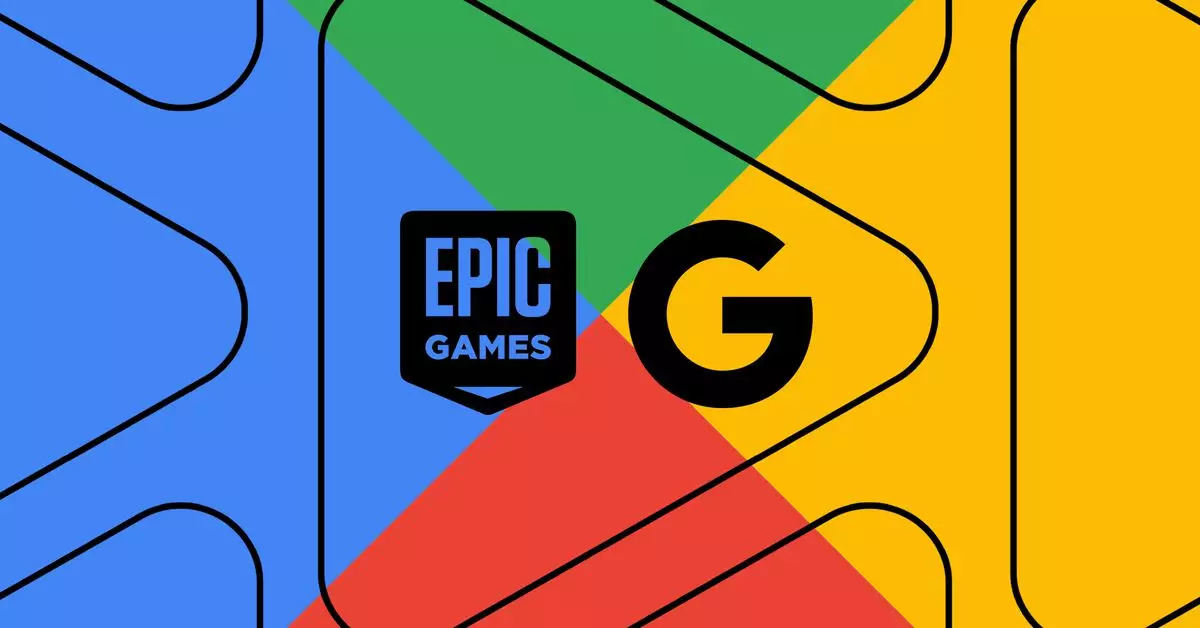The mobile gaming landscape is on the verge of a seismic shift, primarily led by Epic Games, the company behind the immensely popular Fortnite. A recent announcement from Telefónica, a major telecommunications provider with significant influence in the UK, Spain, Germany, and Latin America through the O2 and Movistar networks, has stirred up discussions in the tech community. They plan to preinstall the Epic Games Store on every new compatible Android phone, including the latest Samsung models. This strategic maneuver represents the first instance of the Epic Games Store being preloaded on consumer devices, marking a substantial step toward challenging the dominance of Google’s app store.
This partnership is more than just a convenience for gamers; it signifies an intensifying battle for app store supremacy. The roots of this standoff can be traced back to Epic’s fervent response to what it perceives as monopolistic practices by Google. The implications of this partnership echo the verdict reached in December 2022, where a federal jury ruled in favor of Epic Games in its antitrust case against Google. The ruling highlighted Google’s alleged efforts to maintain a chokehold on the Android app ecosystem, effectively blocking competitors and implementing measures to prevent alternative app stores from flourishing on its platform.
Telefónica’s willingness to onboard the Epic Games Store is particularly noteworthy in light of recent judicial decisions. With Judge James Donato’s directive preventing Google from imposing further restrictions on competing app stores, the pathway has been cleared for Telefónica to offer Epic’s platform to its users. This action not only broadens the distribution of Fortnite but also reinforces Epic’s objective to disrupt Google’s hegemony significantly. The Epic Games Store could potentially serve as a launching pad for additional applications beyond gaming, presenting a formidable alternative to the Google Play Store.
However, the journey hasn’t been without hurdles. Since Epic’s inception, it has sought to collaborate with various phone manufacturers and carriers to preinstall Fortnite installers on devices. Despite initial agreements with prominent brands like Samsung and LG, many of these collaborations fell apart, mostly due to the terms imposed by Google. Allegations surfaced that Google utilized monetary incentives to discourage or outright deny access to Epic’s initiatives, a claim that Google has contested.
Despite these challenges, Telefónica’s commitment to preinstalling the Epic Games Store is a significant achievement for Epic. Unlike other carriers that allegedly succumbed to Google’s influence, Telefónica stands as a beacon of resistance, showcasing the possibility of carving a niche in the heavily regulated app marketplace.
As the mobile gaming ecosystem evolves, the preinstallation of the Epic Games Store may be a pivotal moment for the industry. The partnership between Telefónica and Epic Games is poised to influence not just the availability of Fortnite on more devices but also the dynamics of revenue sharing within app stores. Epic has long campaigned for a more favorable percentage of revenue for developers, and with this new distribution model, it could facilitate a more equitable economic landscape for the gaming industry as a whole.
This collaborative venture does raise questions about the potential reactions from device manufacturers and other carriers. For instance, how will Samsung react to the preloading of a competitor’s platform on its devices? In a broader context, this could lead to an industry-wide reevaluation of relationships between software developers, carriers, and hardware manufacturers, fostering a more diversified app ecosystem.
Furthermore, if the Epic Games Store successfully establishes itself as a viable alternative on Android devices, it could embolden other developers to consider similar partnerships. This burgeoning rivalry among app distribution platforms is likely to benefit consumers by enhancing choices and driving innovation in mobile applications.
Ultimately, the preinstallation of the Epic Games Store on Telefónica’s devices is a defining moment in the ongoing battle between app store giants. It illustrates how strategic partnerships and a commitment to challenging the status quo can reshape the digital landscape. As Epic Games continues to fortify its position in the mobile market, it will be fascinating to observe how this rivalry evolves and what it means for consumers and developers alike. The stage is set for a new era in mobile gaming, one where competition might finally drive down prices and elevate the quality of apps available on our devices.

